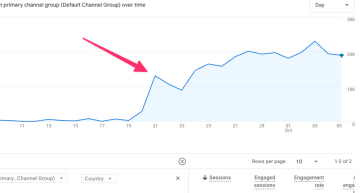
Tips for Selecting Web Hosting When Flipping and Developing Geo Service Domains.
Quick Summary of Contents
Grab a drink and a snack. You have quite a bit of reading to do today… 😀
If you’ve been around this blog long enough, then you know that I have an affinity with geo-related and geo-service domains.
Most people within the domain industry tend to qualify geo service domains as exact match domains.
Personally, I too often define geo service domains not to be only exact matches but also partial match domains.
For instance, let’s say you own a small carpet cleaning business in Austin, Texas.
Most businesses tend to choose their business name to develop their website, such as CarolsCarpetCleaning.com.
This type of domain is referred to as a partial match domain because it contains the keywords “carpet cleaning” within it.
However, there are only a few savvy businesses that are the early birds of the geo service domain for their respective local markets.
Instead of setting up shop using CarolsCarpetCleaning.com, why not use the exact match domain or geo service domain of AustinCarpetCleaning.com?
But it doesn’t stop there either. One could also register the following domains:
- AustinCarpetCare.com
- AustinCarpetCleaner.com
- AustinCarpetCleaners.com
- ATXCarpetCare.com
- ATXCarpetCleaner.com
- ATXCarpetCleaners.com
And this list of domains can continue on with a multitude of variations and abbreviations.
Many businesses with long city names opt for shortened or abbreviated cities or locations.
Consider the following cities and their various abbreviations:
- Round Rock, TX or Round Rock or RR
- Austin, Texas or Austin or ATX
- Philadelphia or Philly or Brotherly Love
- Washington or WashingtonDC or DC
- Jacksonville or Jax
- St Petersburg or St Pete
- Port Aransas or Port A
- San Francisco or San Fran or SF
- St Louis or STL
- Chicago or Chitown or Windy City
- Dallas or DFW or D Town
- Fort Worth or FW or DFW or Cow Town
- Houston or H Town
I digress, yet you get the point which is to pay close attention to whether or not the long, short, abbreviated, and nickname domains are registered for a specific city or location.
You must know about the city or location you’re selecting when investing in geo-service domains.
But let’s get back to the Austin Carpet Cleaning example. What if your business owned each domain above and redirected it to your primary website?
Think for a moment about how your customers find your business. In the case of Carol’s Carpet Cleaning, I would imagine most are typing in the following phrases:
- “carpet cleaning in austin”
- “carpet cleaning in austin tx”
- “carpet cleaning in austin texas”
- “austin carpet cleaning”
- “austin carpet cleaners”
Carol’s Carpet Cleaning is a nice or partial match or brandable domain.
However, the better choice would be to make your business domain one that is short and easy to remember and places your business head and shoulder above the competition as a credible company.
This type of example is happening all throughout the world and will continue to do so as millions more get on the internet for the first time as days and years pass by.
I’m a babbling brook when I think about the opportunity in flipping and developing geo-service domains, whether local, regional, national, or global.
Guides and Tutorials for Flipping and Developing Geo Service Domains.
In fact, I’ve written quite a few posts, a video tutorial, and a hands-on guide about how to flip and develop geo service domains for a profit.
From how to develop a geo service website to lease or sell to a business to flipping geo service domains using a single page sales or out-of-business lander to accept purchase or lease inquiries, I share quite a few tips and tricks for flipping and developing geo service domains on a weekly basis.
However, there have been a handful of you to call to email about how I manage and host my growing portfolio of geo service domains (254+ geo service domains) that I flip and develop like breathing.
So I thought I would take time today to share a bit about my email and web hosting setup and process for flipping and developing geo service domains.
Who do I recommend using for web hosting?
Let me start by saying that you’ll likely have to do your own homework and due diligence when it comes to selecting the appropriate web hosting providers based on your very own geo location.
I’ll share how I operate my geo-service domain strategy in hopes that it will provide you with a bit of insight into how you might proceed.
There are quite a number of web hosting providers that are available, as you can see from the list below:
- 1and1.com*
- A2Hosting.com
- Amazon Web Services*
- Bluehost.com*
- DigitalOcean.com*
- DreamHost.com
- GoDaddy.com*
- Google Cloud Platform*
- HostGator.com*
- Hosting24.com
- HostMonster.com
- Hostwinds.com
- InMotionHosting.com
- InterServer.net
- iPage.com
- Linode.com
- LiquidWeb.com
- MediaTemple.com
- Rackspace.com
- SiteGround.com
- Squarespace.com
- Weebly.com*
- Wix.com*
- WPEngine.com*
And I know it can be difficult to select a web hosting provider that best meets your website needs when seeing the sprawling list of web hosting providers above (this barely scratches the surface too).
Personally, I’ve used or currently use and support the services of the web hosting providers with an asterisk beside them. I have had my share of wins and losses too.
Sometimes the chosen web host provider wasn’t the issue as much as it was the way my web application or website had been programmed to execute.
So, before you point fingers and say that a web host provider’s technical service was horrible, be sure your application or website’s code is not at fault.
When my web application and website were not at fault, then most of the time it was bad customer service or a series of downtime or technical glitches.
And when bad customer service or technical glitches impede my websites from operating efficiently, then I go search for a more reliable and affordable web hosting provider.
Out of the list of web hosting providers above, I personally recommend using the following in their respective orders:
- Read why GoDaddy is my primary web hosting provider and more…
- Read why and how I use HostGator.com as a secondary web hosting provider…
- Read why and how I use Bluehost.com to test SEO theories
What to consider when comparing web hosting providers and plans.
If you’re not running a medium to high volume transaction environment, which most small businesses don’t, then operating your website within a shared hosting environment should do the trick.
Although I use shared hosting across all three web hosting providers, I recommend that you use a Virtual Private Server when possible. Why use VPS services over shared hosting plans?
A bit more expensive, VPS limits your website from being impacted by overutilization of memory, processing speed, storage, and traffic bandwidth, unlike shared hosting.
For instance, your website could be hosted with tens of thousands of websites when using a shared hosting environment whereas a VPS isolates resources to your website and your website only.
However, shared hosting has come quite a long way and is getting more and more inexpensive by the day as well as making leaps and bounds to remedy and exponentially improve over utilization challenges it has long suffered from.
Although I recommend VPS, I personally use shared hosting because it’s an inexpensive method for testing my geo domaining theories and strategies until I prove each to be consistently profitable.
Plus, from a technical manageability standpoint, shared hosting is likely best for a business that doesn’t have in-house IT resources to stay up to date with the last web server patches and updates.
Should you move forward with a VPS service with a web host provider, the respective provider is likely to have a fully-managed VPS offering that will handle server security, OS updates, and other patches and updates for a monthly cost.
Don’t be fooled though, because fully-managed VPS offerings can be quite tough in comparison to shared hosting plans.
And when not choosing VPS or shared hosting for your website, many web hosting providers offer fully-managed WordPress hosting plans whereby a user doesn’t have to worry about the headache of security, patches, and updates.
WordPress hosting plans provide more features and performance that are a hybrid of shared hosting and VPS, specifically a web hosting service offering aimed at optimal WordPress performance, security, and scalability.
And much like VPS, WordPress hosting plans come at a cost albeit it is less expensive than VPS in some cases.
The downside of WordPress hosting amongst the providers I’ve chosen is the limited number of WordPress website instances.
That said, I tend to stay away from WordPress and manage as many instances as I want using shared hosting and VPS.
But again, to keep my cost low and until I prove certain geo service domains to be profitable, I stick with shared hosting plans.
Using the links above, I invite and encourage you to read more in-depth details about each web host provider review to learn how and why I use their respective web hosting services to flip and develop geo service domains.
Best way to evaluate your web hosting needs.
In closing, I hope my thoughts guide you in evaluating your strategy for choosing a web host best aligned with your business needs.
In fact, I want to hear from you. Who do you use to host your website and why?












